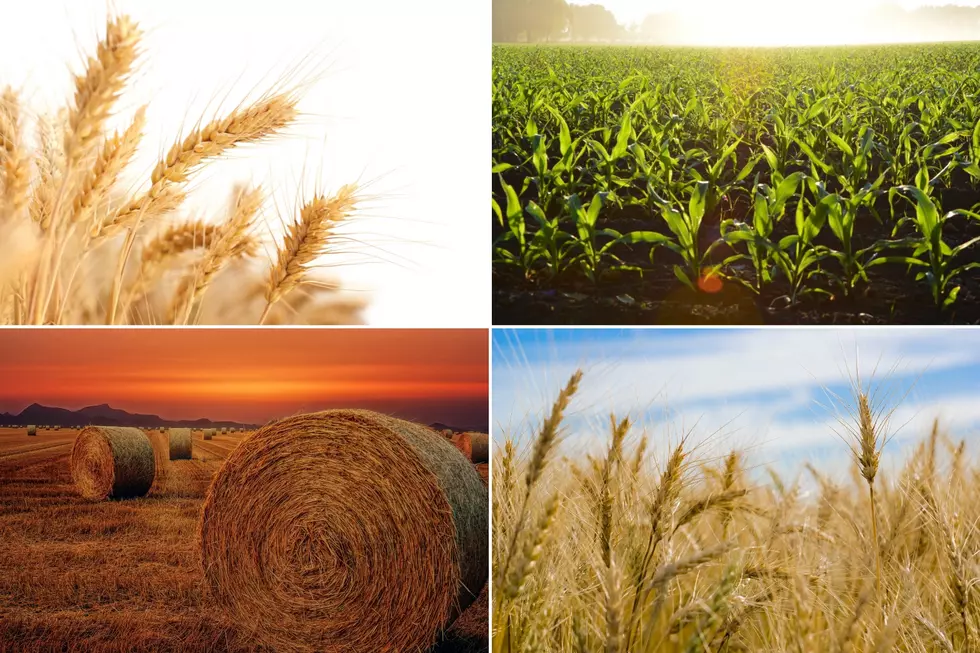
Oregon Receives $2 million in Specialty Crop Block Grant Funds
The state of Oregon has been awarded $2 million in Specialty Crop Block Grant Funding for Fiscal Year 2022. The funds from USDA will be used for 15 projects statewide. Among the projects:
A Northwest Cider Association project to address domestic market development and access issues that will benefit up to 80 Oregon cideries. The association will host a national cider conference, in-bound buyers’ events, media events, and promote Oregon Cider Week in order to achieve their objectives. Additional funded projects focus in areas such as pest management, food safety, and youth education.
Viability of Milton-Freewater fruit industry relies on early access to markets before larger competitive regions. This project will determine the occurrence and origin of the three separate Apple Magot detections in 2020 and the two separate detections in 2021. 2021 Apple Magot detections were in the same vicinity as the 2020 Apple Magot detections, additional trapping, and delimitation for three growing seasons will further narrow down the sources of introduction. Finally, these efforts should re-establish fly free (FF)-pest free area (PFA) standing for Apple Magot in Milton-Freewater. Re-establishing fly free-pest free area standing will allow for early access to the market for the Milton-Freewater fruit industry.
Adelante and its key partners (at the school district and county level) will collaborate to expand the local farm-direct market for fresh produce from Latinx farmers to be purchased by community partners and the community at large to be distributed to food-insecure families across Washington County. During the grant period we will connect Oregon specialty crop vegetable, fruit, and herb farmers to new food-insecure consumers through diverse food bank distribution sites.
The Family Nurturing Center’s Farm and Food Program will establish a Growers’ Cooperative Family Food Education Site to increase families’ access to local fresh food and nutrition education, to increase local consumption of specialty crops, and to provide local farms a market for their product that educates consumers about local agriculture.
In collaboration with the Oregon Department of Agriculture, the International Food Protection Training Institute (IFPTI) will enroll specialty crop personnel (growers, packers, and processors) into two online certificate training programs, creating a cadre of “go to” individuals. Training will include the Listeria Control Specialist (LCS) and the Enteric Viruses Control (EVC) certificate programs, developed by food safety professionals from the frozen food industry and IFPTI Instructional Systems Designers. The programs are self-paced, interactive, and upon successful completion learners receive a certificate from IFPTI’s learning management system.
The Northwest Berry Foundation (NBF), in partnership with the Oregon Blueberry Commission and the Oregon Raspberry and Blackberry Commission, will address the bottlenecks in shifting Spotted Wing Drosophila (SWD) management strategies at the grower, packer, and buyer level. This project plans to demonstrate an effective SWD Integrated Pest Management (IPM) program in the field and produce online resources for IPM SWD management. It will also bring together stakeholders from every aspect of the Oregon berry industry through industry forum events to find ways to refine management standards and expand knowledge and use of alternative management strategies around this pest. The overall goal is to develop an effective Integrated Pest Management (IPM) plan for SWD that utilizes fewer insecticide applications and spares beneficial insect populations, saving farmers money, and lessening the environmental impact of multiple sprays thereby advancing the competitiveness and producibility of blueberries and cranberries in Oregon.
“USDA applauds Oregon’s continued commitment to supporting our nation’s producers of fruits, vegetables, tree nuts, and nursery crops through the Specialty Crop Block Grant Program,” said USDA Under Secretary for Marketing and Regulatory Programs Jenny Moffitt. “The projects funded will foster innovative research and new market opportunities within the specialty crop sector, while furthering USDA’s goals of creating a more fair and equitable food system and supporting local and regional producers.”
“In addition to creating a more fair and equitable food system, Oregonians will use these funds to address the effects of drought and climate change,” said Alexis Taylor, Oregon Department of Agriculture, Director. “Projects like developing climate resilient vegetables and investing in the expansion of cover crop use is essential for the future of Oregon agriculture.”
The funding to Oregon is part of a total of $72.9 million in non-competitive FY 2022 SCBGP funding awarded to 55 states, territories, and the District of Columbia. The funding for the SCBGP grants is authorized by the 2018 Farm Bill and FY2022 funding is awarded for a three-year period beginning September 30, 2022.
Since 2006, USDA has invested more than $953 million through the SCBGP to fund 11,331 projects that have increased the long-term successes of producers and broadened the market for specialty crops in the U.S. and abroad.
If you have a story idea for the PNW Ag Network, call (509) 547-1618, or e-mail glenn.vaagen@townsquaremedia.com
More From PNW Ag Network









